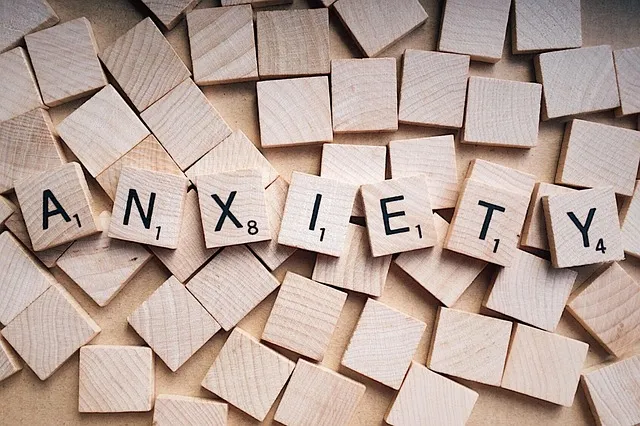The Kaiser Permanente behavioral health center in Castle Rock offers Social Skills Training (SST), a specialized program empowering individuals with mental health conditions, such as depression, anxiety, and trauma. Through role-playing, group discussions, and mindfulness exercises, SST teaches essential social interactions like conversation initiation, eye contact maintenance, non-verbal cue interpretation, and relationship building. This evidence-based approach improves well-being, reduces isolation, and enhances crisis management, fostering confidence in social environments. The center's multi-faceted training method, combined with cultural sensitivity and community outreach, promotes emotional regulation, coping mechanism development, and personal growth in a nurturing environment.
Social skills training is a powerful tool for individuals navigating mental health conditions, offering a comprehensive approach to enhancing interpersonal interactions. This article explores the concept, benefits, and strategies of social skills training, highlighting its significance in supporting mental well-being. We delve into the role of the Kaiser Permanente Behavioral Health Center Castle Rock, a leading provider of mental health services, and how such centers empower individuals through specialized programs. Discover the transformative potential of these training methods for those seeking to improve their social functioning.
- Understanding Social Skills Training: A Comprehensive Overview
- The Role of Kaiser Permanente Behavioral Health Center Castle Rock in Mental Health Support
- Benefits of Social Skills Training for Individuals with Mental Health Conditions
- Strategies and Techniques Used in Effective Social Skills Training Programs
Understanding Social Skills Training: A Comprehensive Overview

Social Skills Training is a specialized program designed to empower individuals with mental health conditions by enhancing their ability to interact and connect with others effectively. This type of training is pivotal for those seeking support at Kaiser Permanente behavioral health center Castle Rock, as it goes beyond traditional therapy by focusing on practical strategies for navigating social situations. It equips participants with the skills needed to initiate conversations, maintain eye contact, interpret non-verbal cues, and build meaningful relationships.
The program typically incorporates various techniques, including role-playing scenarios, group discussions, and mindfulness exercises, all tailored to address specific challenges faced by individuals with mental health disorders. By mastering these social competencies, clients can improve their overall well-being, reduce feelings of isolation, and better manage crises. This comprehensive approach, akin to the risk assessment for mental health professionals, not only prepares them for potential triggers but also fosters a sense of confidence in their ability to navigate social environments successfully.
The Role of Kaiser Permanente Behavioral Health Center Castle Rock in Mental Health Support

The Kaiser Permanente Behavioral Health Center Castle Rock plays a pivotal role in providing comprehensive mental health support to its community. This specialized center is dedicated to addressing various behavioral and psychological challenges, offering a range of services tailored to individual needs. With a team of experienced professionals, they ensure that every patient receives personalized care, fostering a supportive environment for recovery and well-being.
One of the unique aspects of this health center is its focus on integrating public awareness campaigns and cultural sensitivity into mental healthcare practice. By promoting self-care practices and raising awareness about mental health issues, they empower individuals to take charge of their well-being. This holistic approach not only enhances access to care but also contributes to breaking down stigma associated with seeking mental health support, ultimately improving the overall mental wellness of the community.
Benefits of Social Skills Training for Individuals with Mental Health Conditions

Social Skills Training (SST) offers a transformative approach to supporting individuals with mental health conditions, such as depression and anxiety disorders, or those who have experienced trauma. This evidence-based practice is designed to empower people by teaching them essential social interactions and communication strategies, fostering a sense of belonging and improving overall well-being. At the Kaiser Permanente behavioral health center in Castle Rock, SST programs are tailored to meet individual needs, focusing on building inner strength and resilience.
By participating in SST, individuals gain confidence in their ability to navigate social situations, which can be particularly challenging when dealing with mental health struggles. These skills enable them to connect with others, express themselves effectively, and manage relationships more successfully. Moreover, SST encourages the development of coping mechanisms that promote emotional regulation, enhancing one’s ability to prevent relapse and manage symptoms. Trauma support services within these programs create a safe space for individuals to process their experiences, fostering healing and personal growth.
Strategies and Techniques Used in Effective Social Skills Training Programs

Effective social skills training programs for mental health conditions often employ a multi-faceted approach, combining strategies that cater to individual needs while considering cultural nuances. At Kaiser Permanente behavioral health center Castle Rock, these programs typically involve a mix of role-playing exercises, cognitive-behavioral techniques, and mindfulness practices. Trained facilitators create safe, supportive environments where individuals can practice social interactions, learn coping strategies, and develop inner strength.
The success of such training often hinges on cultural competency, ensuring that the healthcare provider’s approach resonates with diverse backgrounds. This involves incorporating cultural perspectives into the curriculum, promoting empathy, and tailoring interventions to reflect participants’ experiences. Community outreach programs play a crucial role in expanding access to these services, making them more inclusive and effective. Additionally, fostering inner strength through self-awareness exercises and positive reinforcement helps individuals navigate social challenges with resilience and confidence.
Social skills training, as offered by centers like the Kaiser Permanente Behavioral Health Center Castle Rock, proves invaluable for individuals managing mental health conditions. By equipping them with effective communication, conflict resolution, and social interaction strategies, these programs enhance their ability to navigate social environments, fostering improved mental well-being and overall quality of life. Leveraging evidence-based techniques, facilities such as the Kaiser Permanente Behavioral Health Center Castle Rock contribute significantly to the holistic treatment of mental health disorders.






